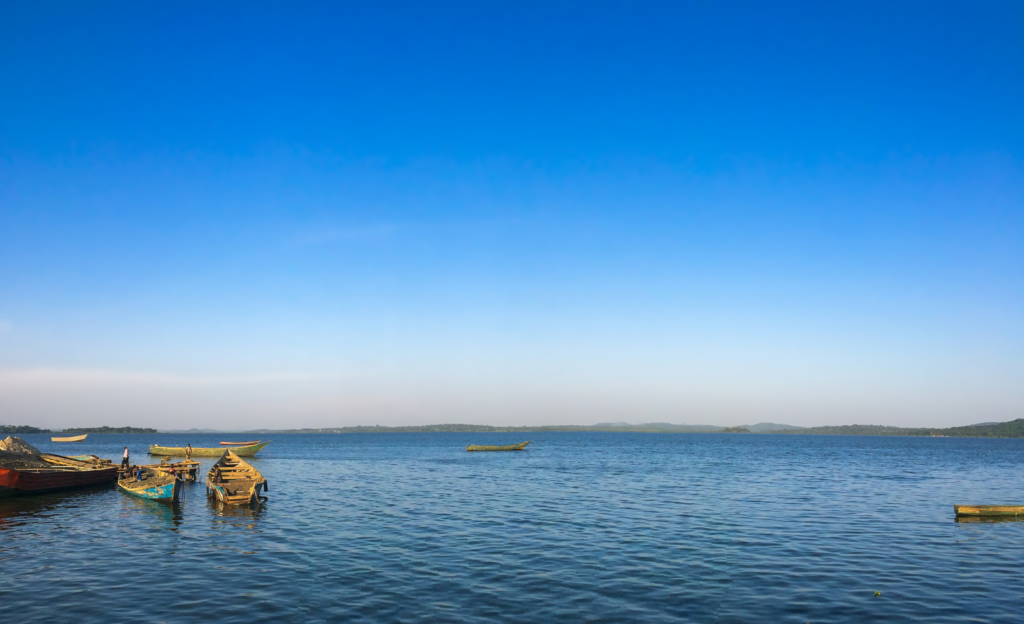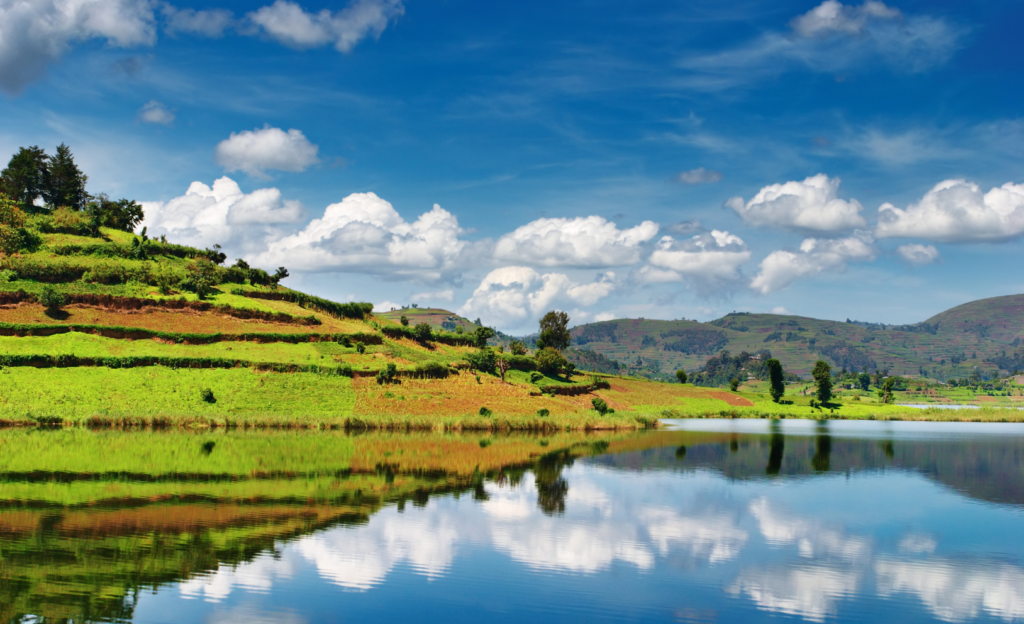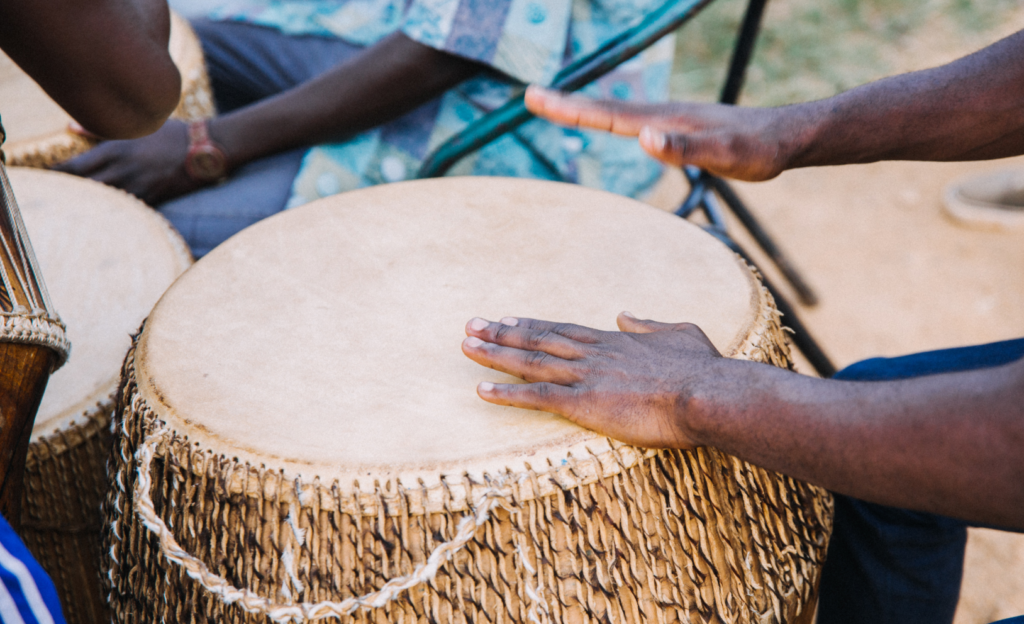Why we love Uganda
Uganda is all drama and depth – mountains, rainforest and the world’s longest river running through it. Trek through Bwindi’s misty hills in search of gorillas, follow the Nile from its source, or watch sunrise over Lake Victoria with nothing but birdsong for company. It’s a country that still feels raw in the best possible way. This guide shares everything you need to know before you go.

Entry requirements
Most nationalities require a visa to enter Uganda. Applications must be made online through the official Uganda e-Visa website. You’ll need to upload a copy of your passport, a passport photo and your Yellow Fever certificate. The visa costs $50 per person and you’ll need to take a printed copy of your approval receipt with you. We recommend applying at least two weeks before departure. Our Operations Team are happy to help with the process if needed.
Your passport should be valid for at least six months from the date you arrive in Uganda.
Please check your local government travel guidance and let us know if you’re travelling from a different territory.
Health and medical
We are not certified to give medical advice, but we recommend you consult your doctor about your vaccination history and discuss any further vaccinations you may need for your trip. We recommend this website for travel vaccination information and advice on bringing medication into the country.

Getting around
We can arrange all transfers for you – just send us your flight details and we’ll handle the logistics. For multi-stop trips, we can also plan transfers between regions and lodges to ensure smooth connections.
Baggage
Across Sub-Saharan Africa, there are specific baggage allowances for each country and sometimes even different airlines. See below for Uganda’s baggage allowances:
Airline: Aerolink
Type: Scheduled and charter aircraft
Weight allowance: 15kg (soft-sided) – total weight including hand luggage
Dimensions: 60cm x 45cm x 33cm
What is a soft-sided bag?
The aircraft requires light bags as they are small planes, so you will need luggage made from flexible material e.g. not hard-sided.
Packing
We strongly recommend carrying overnight essentials and prescribed medication in your hand luggage, especially if you’re connecting to an onward destination. If you’re travelling on light aircraft flights, any extra bags can be safely stored by our Operations Team in Entebbe.
Check out our What to Pack on Safari Guide for a comprehensive packing list.
Climate
Uganda has a tropical climate, with two main dry seasons – from June to October and from mid-December to February. Rain can fall at any time of year, keeping the landscapes so rich and green.
For gorilla and chimpanzee trekking, we recommend wearing old, comfortable clothes that can get muddy, plus lightweight gloves for pushing through undergrowth. Evenings can be cool in the mountains, so pack layers.

Laws and customs
Here are our top tips for adhering to Uganda’s laws and customs, but please read the official guidance before travelling.
– Always carry some form of identification. A photocopy of your passport is sufficient while your physical passport stays safely at your lodge.
– Photography near military, police or government buildings is prohibited. Always ask before photographing people.
– Same-sex sexual activity remains illegal in Uganda, but LGBTQIA+ travellers are generally safe when exercising caution.
– Public displays of affection are uncommon and may attract attention in rural areas.

Money matters
The currency is the Ugandan Shilling (UGX). Most lodges accept both US dollars and shillings, though we recommend carrying some cash for smaller purchases or market visits. USD notes should be clean, unmarked, and printed in or after 2009, as older bills are not widely accepted. You’ll find slightly better exchange rates at forex bureaus in Entebbe Town than at the airport. If you’d like to change money on arrival, our Operations team can help arrange this.
Tipping
Tipping practices vary around the world, so it’s always best to check on arrival what the preferred process is. The below serves as a simple guideline to help you plan. Amounts are listed in USD, which is widely accepted and works well as a benchmark, though local currency may sometimes be preferred.
Tipping is not mandatory in Uganda, but it is customary and always appreciated for good service. Most lodges have a communal tip box that is shared among staff. You can tip in Ugandan Shillings or clean, newer dollar notes (2009 or later).
Safari in Uganda
Guide or driver: $10–30 per traveller per day (give directly at the end of your trip).
Lodge staff: $5–10 per traveller per night (in the communal tip box).
Gorilla and Chimpanzee Trekking
Lead guide (Uganda Wildlife Authority): $10.
Ranger: $5.
Advance team (usually three rangers): $5 each.
Porter (optional): $20 fee plus $5 tip if happy with the service.
General Travel
Restaurants: Around 10% of the bill.
Transfers: $10–20 per transfer, depending on the length of journey.

Practicalities
Plug type: Uganda uses Type G plugs – the same as the UK – with three rectangular pins in a triangular pattern.
Flights and time zone: The average total flight duration from London to Entebbe is around twelve hours, usually with one stop. Uganda is three hours ahead of GMT (GMT+3).
Language: Uganda’s official languages are English and Swahili, though you’ll also hear a variety of local dialects spoken throughout the country. English is widely used in lodges, parks and tourist areas. Here are a few useful Swahili phrases:
Hello – Jambo
Thank you – Asante
Please – Tafadhali
Yes / No – Ndiyo / Hapana
Where is the bathroom? – Choo kiko wapi?
I need help – Nahitaji msaada

Food and drink
Ugandan food is rustic, comforting and full of earthy flavour. Drawing influence from East African, Indian and Arabic traditions, it focuses on the country’s local produce and tropical ingredients.
Here are some dishes and drinks to try during your trip:
Luwombo: A fragrant, slow-cooked stew of meat, fish or vegetables wrapped in banana leaves, often served with rice or matoke (green plantain).
Matoke: A national staple made from steamed green bananas, served mashed and eaten with sauces or stews.
Muchomo: Chargrilled meat skewers, Uganda’s version of barbecue – smoky, spicy and found at roadside stalls everywhere.
Posho: A thick maize porridge often eaten with beans or stew, a comforting everyday dish.
Rolex: A street-food favourite made by rolling eggs, onions and vegetables into a chapati.
Waragi: A local gin distilled from bananas or sugarcane, often mixed with tonic or ginger beer for a refreshing evening drink.
Ugandan coffee and tea: Uganda produces some of East Africa’s best Arabica beans and lush highland teas.
Keep connected
Most travellers use a Ugandan SIM or e-SIM to stay connected. These are easy to buy on arrival at Entebbe Airport, and our Operations Team can help you get set up. The best local providers are MTN and Airtel. For a seamless start, we recommend purchasing an e-SIM in advance through a trusted provider such as Airalo.
